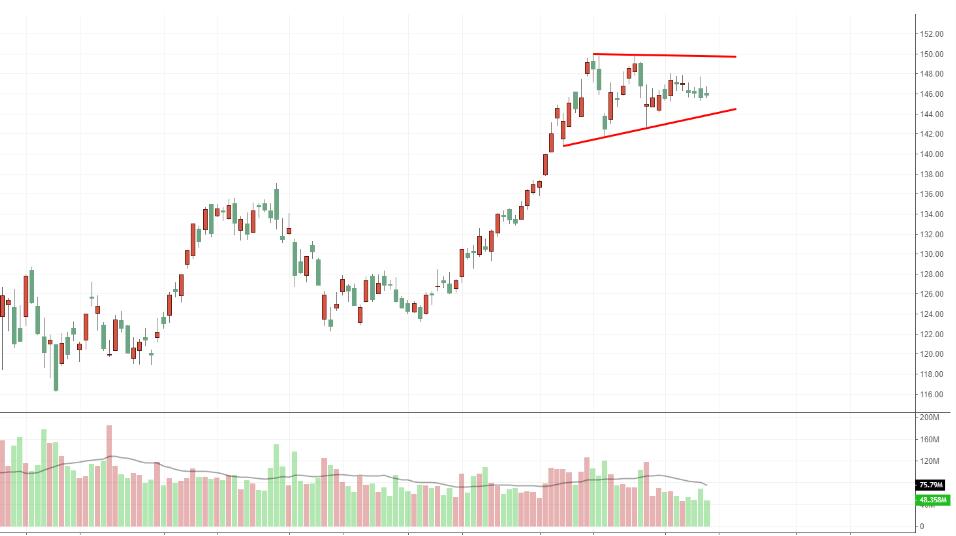The days when Apple "lay down" to make money may be gone forever

On Wednesday, local time, three cross-party members of the U.S. Senate officially announced the "Open App Market Act", which aims to reshape the online app store market dominated by Apple (NASDAQ:AAPL) and Google (NASDAQ:GOOGL). The bill not only requires application store operators not to use their own payment system as a prerequisite for distributing applications, but also requires operating system developers not to restrict users from using third-party application stores.
Apple "lays down to make money"
For example, for in-app purchases, Apple will take away 15%-30% of the payment flow. At the same time, developers are prohibited from telling consumers that purchasing services through different channels can save this "app store tax". It can be described as "Lying down to make money."
Apple’s service sector gross profit was US$35.5 billion in the last fiscal year, and service sector revenue was US$53.8 billion, including App Store sales and subscription services and other online products. The revenue for the first three quarters of the current fiscal year is already close to this. At the first level, gross profit is 34.8 billion U.S. dollars and revenue is 50.1 billion U.S. dollars. Google Store revenue is also included in other services. The department’s sales last year were 21.7 billion U.S. dollars, and sales in the first half of this year exceeded 13 billion U.S. dollars.
If the bill is passed in the future, it will inevitably have a greater impact on Apple's App Store revenue.
What is even more impactful to Apple's ecology is that this bill requires operating system developers not to restrict users from using third-party app stores, while also allowing users to directly install apps locally. Compared with Google, Apple, which emphasizes a closed ecology, is expected to be more affected, which is equivalent to destroying the foundation of the App Store to make money.
Antitrust investigation
Apple also faces a lot of antitrust investigations. Prior to this, the United States and Europe launched antitrust investigations into the policy of charging 30% commissions on the Apple App Store. In order to appease regulators, Apple had to lower the commission rate for small developers to 15%. Within a few days after the news was released, Apple's stock price showed a downward trend.
On April 30th, the European Union Anti-Monopoly Commission issued preliminary charges against Apple in a case complained by Spotify technology. The European Commission accused Apple of abusing its dominant position in the distribution of applications in the App Store. Affected by this news, Apple's stock price fell 1.5%.
In May of this year, Epic Games filed a lawsuit against Apple in the US Federal Court, accusing the App Store of monopolistic business practices.
As the so-called tree attracts the wind, various investigations against Apple have been continuously conducted recently. With the tightening of supervision, the future revenue of its App Store will bring great uncertainty.
Can Apple's stock price go up?
At the end of July, Apple released a very beautiful quarterly report.
Last quarter's sales were 81.4 billion U.S. dollars, and earnings per share were 1.30 U.S. dollars, far higher than market expectations of 73.3 billion U.S. dollars and 1.01 U.S. dollars. Compared with the same period last year, Apple's revenue increased by 100% and sales increased by 36%.
However, the stunning financial report did not bring support to the stock price. After the financial report was released, Apple's stock price fell by 1.2%.
In addition, Apple has given some cautious "directional insights" for the current quarter, including forecasts of slowing service growth and exchange rate risks, and predicts that supply constraints will affect iPhone and iPad sales during the same period. It can be seen that Apple is not optimistic about its future performance.
The next potential catalyst for Apple's stock may be the company's September launch of the iPhone 13 mobile phone and the progress of making cars. At present, Apple's stock price is oscillating and finishing sideways, and trading volume has also shrunk in the short term. Only when it breaks the wedge-shaped interval in the future will there be a clearer direction.



